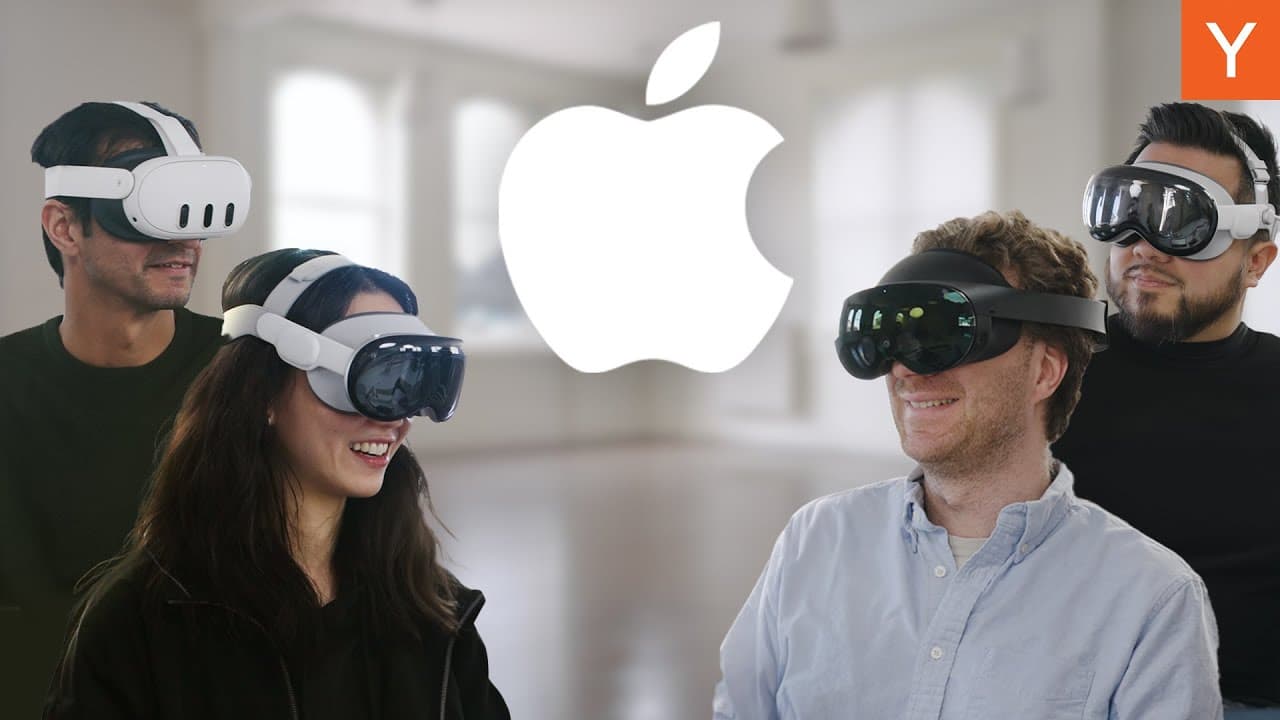Apple Vision Pro: Startup Platform Of The Future?
22 Feb 2024 (almost 2 years ago)

Apple Vision Pro
- The Apple Vision Pro combines Apple's expertise in hardware and software, featuring custom silicon, high-resolution displays, and eye tracking.
- It uses a pass-through video feed for reduced technical challenges compared to optical AR approaches.
- The Vision Pro optimizes pixel density based on eye focus for high-fidelity visuals while managing heat dissipation and battery life.
- The R1 co-processor handles high data bandwidth from multiple sensors, enabling real-time processing of sensor data.
Comparison with Self-Driving Cars
- AR headsets like the Vision Pro share similarities with self-driving cars in terms of localization and mapping (SLAM), but with increased hardware complexity due to compact form factors and user comfort.
Focus on Productivity
- Unlike Meta's devices, the Vision Pro prioritizes productivity over gaming.
- It features the same M2 chip as the MacBook Air, allowing users to perform all their work on the device.
Eye Tracking and SDK
- Apple has invested heavily in eye tracking for an enhanced user experience.
- The Vision Pro SDK provides better support for spatial computation and real-world applications compared to Meta's SDK.
Potential Impact and Challenges
- It's uncertain whether the Vision Pro will be a revolutionary success or a failure like the Newton.
- Unlike mobile devices, mass adoption may be slower, but it could capture high-end use cases in fields like construction and engineering.
- Potential failure modes include the inability to follow up on initial success with more affordable models and the chicken-and-egg aspect of developer hesitation due to a limited user base.
- Unlike platform-agnostic companies like DoorDash and Instacart, the Vision Pro's specific hardware platform could limit its potential user base.
Facebook's Acquisition of Oculus
- Facebook acquired Oculus to maintain its dominance in consumer social networking against platforms like Instagram.
Potential of Spatial Computing and VR
- Spatial computing and VR have significant potential, but there's uncertainty about developing truly immersive and unique applications.
YC's Funding Strategy
- YC's success in funding successful startups during platform shifts stems from evaluating applications from first principles rather than relying on strong theses on specific technologies or platforms.
- Founders with genuine passion and a strong desire to build VR applications are more likely to succeed in this space.